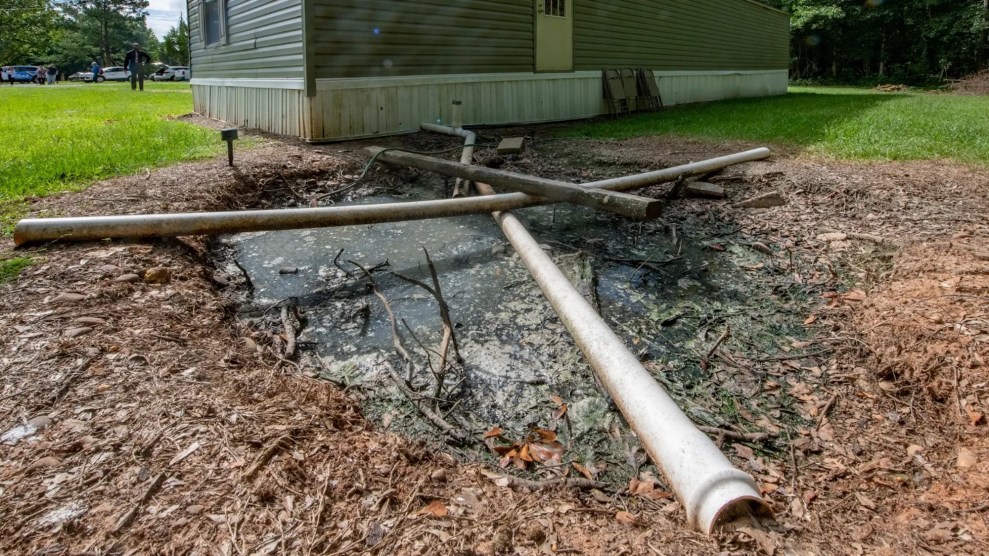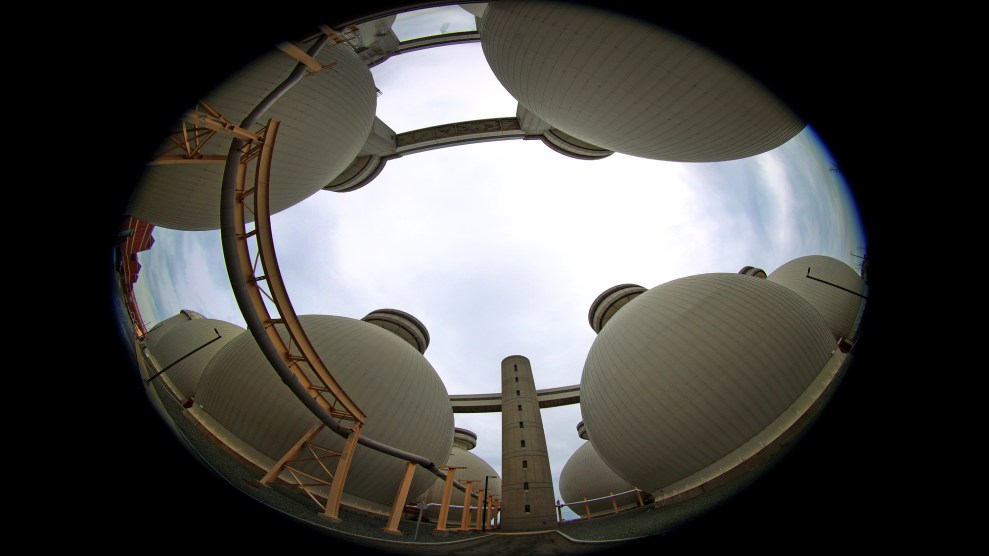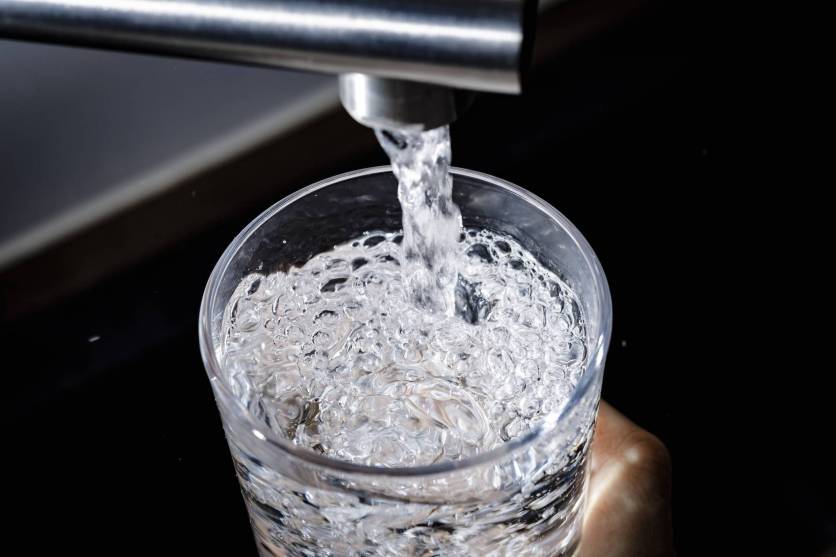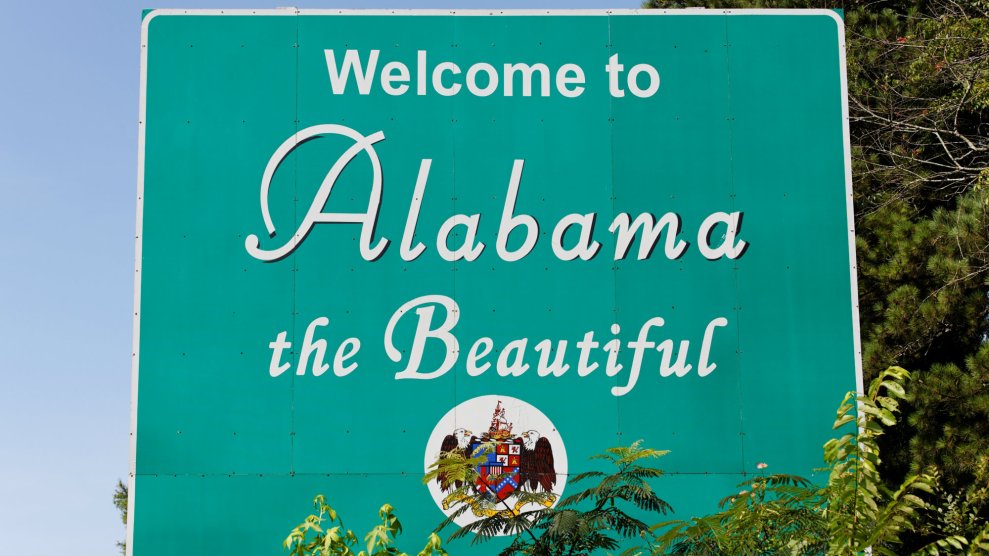
Lance Cheung / U.S. Department of Agriculture
This story was originally published by Grist and is reproduced here as part of the Climate Desk collaboration.
Sewage collecting in crudely dug trenches. Failing septic tanks that send waste bubbling into backyards. These are some of the common sights across Alabama’s Black Belt, a strip of 24 continuous counties blessed with deep fertile soil but long plagued by inadequate wastewater infrastructure and the commensurate parasitic disease.
It’s a problem, advocates say, that the state has the resources to address.
The US Environmental Protection Agency opened a civil rights probe last week into the Alabama Department of Environmental Management and its implementation of a federal program designed to boost water infrastructure in communities across the country. The decision comes after advocates filed a complaint in March alleging that, for years, the state has hindered Black residents in rural areas from obtaining federal funds to update their wastewater systems.
It’s a region where children play on sewage-laden soil and an overwhelming stench envelops some neighborhoods for weeks on end. “It’s really disgraceful and painful that people endure this, especially when we have the opportunity to fix it,” said Aaron Colangelo, an attorney at the Natural Resources Defence Council who has been working on the issue.
The March complaint was filed under Title VI of the 1964 Civil Rights Act, which prohibits discrimination on the basis of race, color, or national origin under any program that receives federal funding. At issue is the state’s distribution of money from the Clean Water State Revolving Fund, a federal program that provides financial assistance for states to carry out water infrastructure projects.
In urban areas, that usually means funding updates to municipal wastewater treatment plants or controlling sources of toxic pollution. But in Alabama’s sparsely populated Black Belt, where a disproportionate number of residents are Black and live in poverty, it entails providing financial support for people without access to a centralized sewer system to build onsite septic tanks. The Black Belt gets its name from its soil, a dark earthen clay that drains water very slowly, making it difficult to set up septic systems. Many of the ones that do exist are antiquated and in dire need of repairs—at least 50 percent in one rural Alabama county, according to a UN report from 2011.
In theory, federal dollars from the Clean Water State Revolving Fund should help. But in their March complaint, attorneys at the Natural Resources Defense Council and the Southern Poverty Law Center alleged that state regulators designed a system that makes it impossible for rural residents to access this crucial financial assistance.
One of the ways that the Alabama Department of Environmental Management does this, the complaint states, is by only allowing public bodies to receive funding, ruling out rural homeowners and community groups (in contrast, other southern states like North Carolina and Arkansas give high priority to onsite sanitation systems).
“The result is stark: Alabama has distributed more than one and a half billion dollars in Clean Water State Revolving Fund money since the program’s inception in 1987, but it has never awarded any money” to support individual households’ onsite sanitation needs, the complaint read.
A lack of wastewater infrastructure can have severe public health consequences. One study from 2017 found that one-third of residents in Alabama’s Lowndes County are dealing with hookworm, an intestinal parasite that can cause anemia and stunt children’s mental development.
The direness of the wastewater situation across the Black Belt has been well documented for more than a decade. In 2017, a UN poverty official toured the region and remarked that he’d never seen anything like it in the First World. A 2021 civil rights probe by the Department of Justice and the Department of Health and Human Services into the conditions in Lowndes County concluded in May with the state agreeing to identify homes with inadequate sanitation systems and updating them.
Colangelo, the lawyer at the Natural Resources Defense Council, called that settlement “remarkable,” but added that it will only solve the problem for one of the Black Belt’s counties. The EPA’s probe this week will hopefully address the issue statewide, he said, requiring regulators to accept individual household bids for onsite sanitation funding and to conduct outreach to communities that are not aware that the financial assistance exists.
Earlier this summer, the EPA dropped a high-profile civil rights complaint in Louisiana’s primary industrial corridor, where more than 100 industrial plants dump toxic pollution into the air of predominantly Black neighborhoods. While that decision prompted advocates to consider whether the agency would fail to follow through with other Title VI complaints, Colangelo told Grist that he does not expect a similar situation in Alabama. “It’s on EPA to see it through, but we’re confident that they will,” he said.
The Alabama Department of Environmental Management has 30 days after the EPA’s announcement to respond to its probe in writing. After that, the federal agency could choose to bring all parties to the negotiating table to work out an agreement or conduct an investigation of its own.















